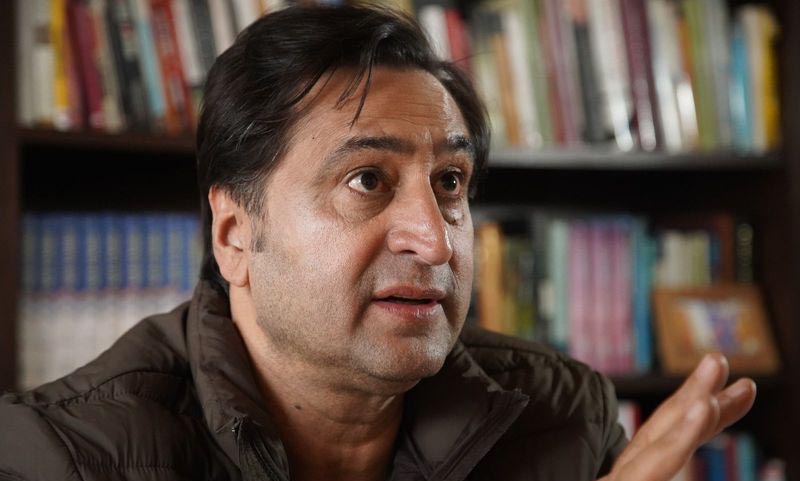Sajad Lone RTI on Reservation in Jammu & Kashmir: A Push for Data-Driven Policy Reform
By: Javid Amin | Srinagar | 04 July 2025
A Bold RTI Initiative: Sajad Lone Demands Transparency in Recruitment
In a landmark political and social move, Sajad Gani Lone, President of the Jammu & Kashmir Peoples Conference, has filed a Right to Information (RTI) application demanding recruitment data from the last ten government examinations conducted in the Union Territory. His aim? To scrutinize the real-world impact of the current reservation system on the Kashmiri-speaking ethnic majority, and to back his claims with verifiable data rather than mere rhetoric.
This initiative comes amid growing calls for transparency and fairness in public sector recruitment, especially from youth in Kashmir who feel alienated by what they see as an imbalanced policy structure.
What Sajad Lone Is Demanding in the RTI
Sajad Lone’s RTI is detailed and ambitious. He is specifically seeking:
- Actual marks scored by all candidates in the last 10 major government recruitment exams.
- Final selection lists post-reservation application.
- Merit-based lists (pre-reservation) for a comparative analysis.
By demanding a side-by-side review of merit vs. reserved outcomes, Lone hopes to present a clear picture of how reservation policies are influencing job selections in J&K.
“This is not about political speeches. It is about evidence. We want to use data to measure injustice, if any,” said Lone.
Why This RTI Matters: A Battle Between Votes and Dreams
Lone’s initiative is not merely a political gesture. It reflects a larger battle brewing over representation, equity, and access. He cautions that youth aspirations must not be crushed for short-term political gains:
“Let dreams not be massacred at the altar of votes,” Lone declared, sharply criticizing what he perceives as vote-bank politics driving quota policies.
Key Implications:
- May expose disproportionate gains/losses for different ethnic or regional groups
- Could trigger legal or policy reforms if unfair trends are statistically verified
- Might become the basis for litigation or public advocacy
The Legal and Ethical Backbone of the RTI
By using RTI—a legal right under Indian law—Sajad Lone has chosen a non-confrontational, procedural route to make his case. This method:
- Strengthens democratic accountability
- Avoids inflammatory political language
- Builds public pressure through hard numbers, not emotion
This approach may force the government to confront realities long buried under bureaucratic opacity and political vagueness.
The Broader Political Context: PAC and the Fight for Regional Justice
This RTI is part of a larger political and ideological platform under the People’s Alliance for Change (PAC), a newly formed coalition that has:
- Called for restoration of Articles 370 and 35-A
- Demanded full statehood for Jammu & Kashmir
- Pushed for general amnesty for conflict-affected youth
- Questioned regional bias in development and recruitment policies
The PAC views the current reservation structure as skewed towards the Jammu region, often to the detriment of Kashmir Valley candidates, especially in open merit lists.
What Happens Next: Retroactive Justice?
Lone has indicated that if the government proposes a new or revised reservation system, he plans to retroactively apply it to the same set of data. This would allow:
- A comparative assessment of the old vs. proposed systems
- More robust public debate with factual backing
- A legal or legislative roadmap for reform
This could set a new standard for how reservation debates are conducted in India—using data analytics, not just ideology.
Youth Voices: The Real Stakeholders
Across the Valley, the sentiment is growing that merit has taken a backseat. Students preparing for competitive exams fear their chances are slim, not due to lack of talent but because of policy structures that feel exclusionary.
The RTI thus resonates as a symbolic assertion of their right to fairness. By institutionalizing grievance redressal, Lone is seen by many young Kashmiris as fighting for their future.
A Call for Transparent Governance
Whether one agrees with Lone or not, the RTI sets an important precedent. It urges the administration to:
- Publish recruitment data proactively
- Revisit criteria used in reservation
- Ensure regional and ethnic balance in public jobs
- Make policy decisions traceable to facts
Closing Thoughts: A Pivotal Moment in J&K’s Policy History
Sajad Lone’s RTI is not just a political maneuver. It is a socio-political experiment in data-driven governance. In a region still healing from decades of conflict and mistrust, such initiatives hold the power to rebuild public faith in democratic processes.
If successful, this RTI could become a blueprint for similar actions across India, where youth, equity, and evidence demand to be heard over identity and populism.


